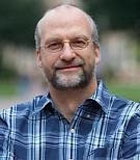Principal Investigator: Christian Smith, University of Notre Dame
Smith and Co-Investigators, Kraig Beyerlein (ND), Jessica Collett (ND), Steve Vaisey (University of California Berkeley), and Trish Snell Herzog (ND) will conduct a primary data collection research project based at the University of Notre Dame. The project will use multiple mixed methods to seek to better understand the basic causal mechanisms that operate to generate, encourage and obstruct the exercise of generosity among people in a variety of settings.
For the purposes of this project, the researchers define generosity as the virtue of giving good things to others freely and abundantly. Generosity also involves giving to others not simply anything in abundance but rather giving those things that are good for others. Generosity always intends to enhance the true wellbeing of those to whom it gives.
What exactly generosity gives can be various things: money, possessions, time, attention, aid, encouragement, emotional availability, and more. Generosity, to be clear, is not identical with pure altruism, since people can be authentically generous in part for reasons that serve their own interests as well as those of others. Indeed, insofar as generosity is a virtue, to practice it for the good of others also necessarily means that doing so achieves one’s own true, long-term good as well. And so generosity, like all of the virtues, is in people’s genuine enlightened self-interest to learn and practice.
In the view of the researchers, too much research in related areas simply seeks to find significant correlations among demographic, attitudinal, and behavioral variables. They by contrast intend to focus on identifying the actual causal mechanisms that produce generous and ungenerous dispositions and behaviors. The question is not what associates with generosity, but what causes it? Too little research to date has pursued that level of explanation.
To address the need for more and better social scientific research on the sources, manifestations and consequences of generosity, the researchers will conduct an original, primary data research project that will take a multi-methods and multi-step approach. There is no need in the current project to compete with longitudinal survey strategies already being fielded in other of the supported projects. Rather the complementary approach here is to bring in the critical realist perspective, taking a non-positivistic focus on the causal social mechanisms generating and depressing generosity, not simply statistically significant associations among variables. This approach leads to research more focused on real social situations, including people who have traditionally refused to provide financial and volunteering data such as personal incomes or congregational budgets, and proactively sampling low generosity and high generosity research participants across several demographic characteristics.
The researchers plan to conduct research for this project in five temporally progressive and methodologically synergistic steps and methods. Those are:
- performing one-year ethnographies in religious congregations representing major religious traditions with the goal of better understanding cultures and practices of whole communities of people operating in local congregation settings over time, to see not only what specific individuals say, but actually how entire religious organizations, work as contexts of faith, organizational ecologies, and practicing communities of believers.
- fielding high response-rate in-person interviews via congregational sampling to conduct interviews with members sampled based on their congregation-reported giving behavior, allowing the researchers to match observed giving behavior with self-reported behaviors and explanations for giving.
- designing and implementing a nationally-representative survey with individual Americans incorporating best established measures of generosity and new measures of generosity based on the previous phases of the study – including studying generosity in its multiple forms of financial giving, volunteering, giving blood or donating organs, political involvement, and relational generosity.
- conducting follow-up in-person interviews with a sample of survey participants for in-depth household and family studies that interview multiple household members and collect observational data on families, households, and neighborhoods.
- exploring the possibility of conducting natural field experiments examining reactions to moral dilemmas within real-world settings.
The combination of these five research steps and approaches will allow the researchers to examine contextual, institutionally-nested causal effects that individual-level survey research alone simply cannot measure. By conducting these studies within religious congregations and among the general public more broadly, we will study both religious and non-religious motivations for and expressions of generosity. The combination of methodologies will enable the researchers to study generosity through more traditional discursive methods, such as surveys and interviews, as well as through non-discursive methods of participant observation and ethnography. This approach will also aid in exploring the multidimensional nature of generosity through investigating in one integrated project the generosity of money, time, talents, and relational giving.




